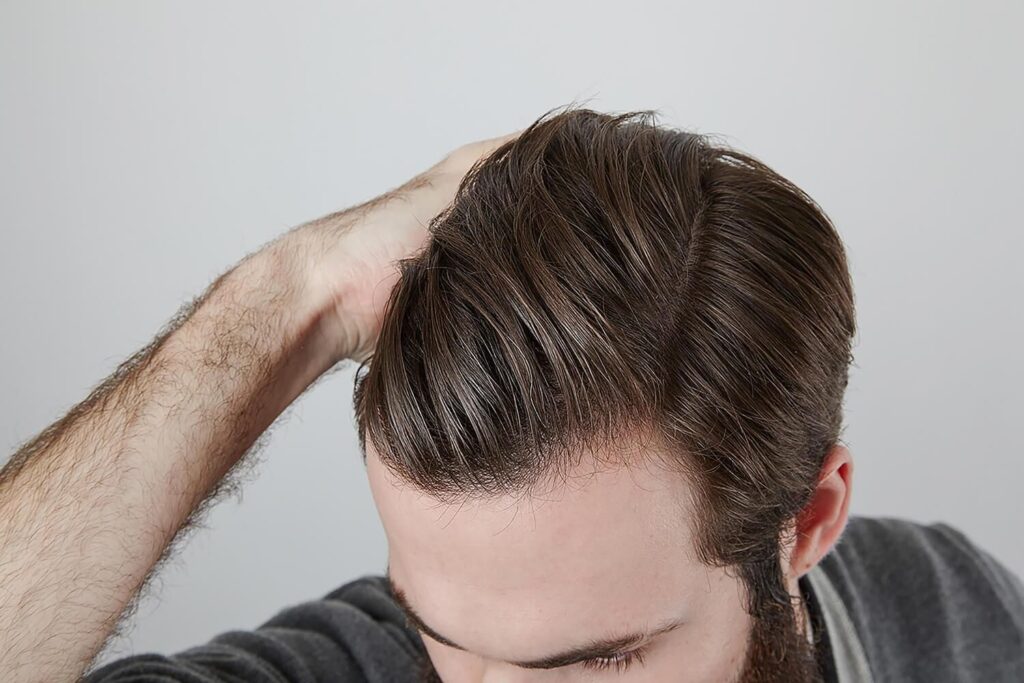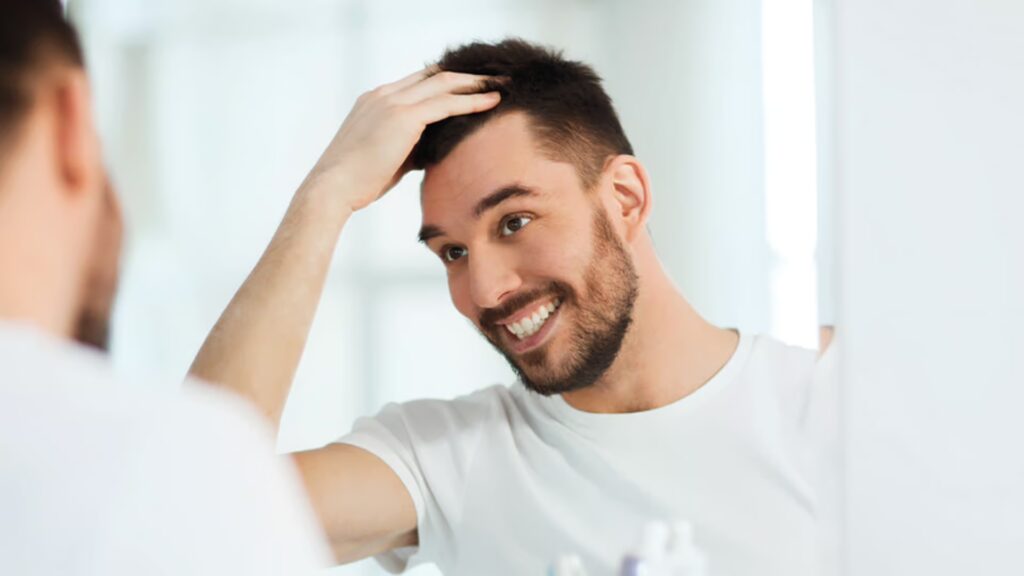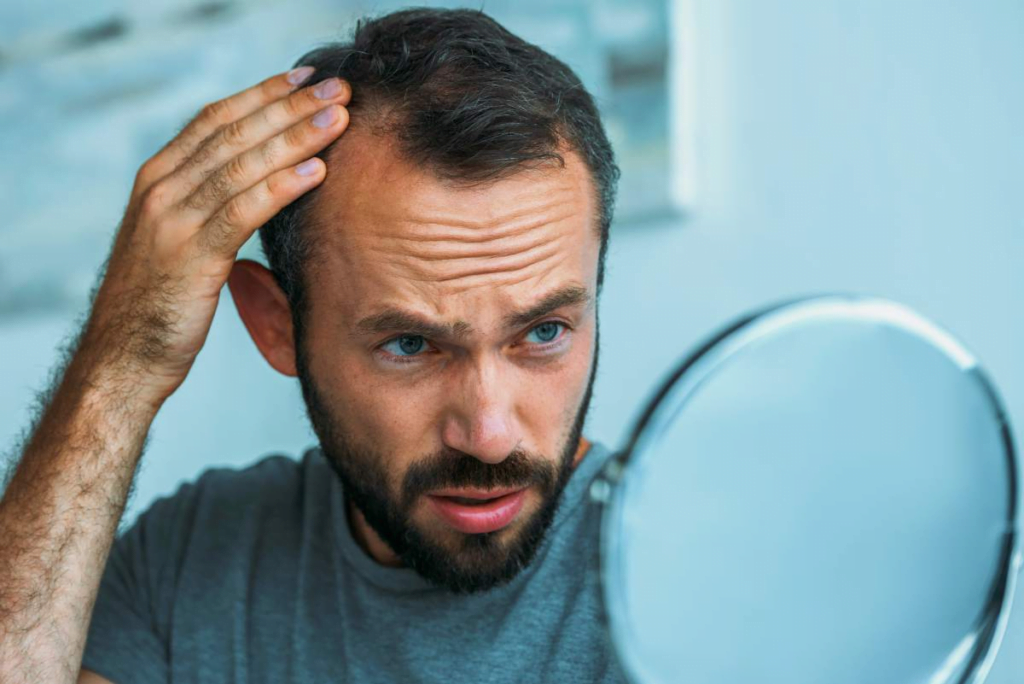
Are you planning to have a hair transplant and are concerned about maintaining the health of your transplanted hair? This article aims to address your concerns.
Hair transplantation offers a permanent and natural solution for both women and men today. However, the healthy growth and long-term preservation of transplanted hair depend not only on the success of the procedure but also on the patient’s post-operative care. So, what should you consider to protect transplanted hair? Here’s what you need to know step by step.
İçindekiler
1. The Most Critical Phase in the First Few Days
The first few days after hair transplantation are the most critical phase and require maximum attention. This is because the hair follicles are at their most sensitive stage in the first few days after transplantation. During this period:
- The scalp should not be subjected to impact,
- The head should be kept elevated while lying down,
- Care should be taken when wearing a hat or cap.
This is because the newly transplanted hair follicles are trying to take root, and they need to be protected from impact during this stage. Even a small mistake during this process can damage the hair follicles and negatively affect the results.
2. Follow the Washing Instructions
The first wash after hair transplantation should generally be done 2-3 days later. Your doctor will give you detailed instructions on how to do the first wash.
- Avoid harsh movements during washing,
- Apply the shampoo in foam form instead of pouring it directly. This also allows for a gentler wash.
- It is important to wash with light touches without rubbing the scalp harshly.
Paying attention to these steps when washing your hair, especially during the first month, is critical for the health of the transplanted hair.
3. Protect Your Hair from the Sun and Excessive Heat
Protecting the transplanted hair follicles from sunlight, especially during the first few months, plays a critical role in the long-term health and permanence of the hair.
Avoid prolonged exposure to direct sunlight,
Wear a thin, breathable hat if necessary,
Avoid extremely hot environments such as saunas and steam rooms.
Sunburn and heat-induced deformation can negatively affect the development of transplanted hair and harm the process.
4. Limit Cigarette and Alcohol Consumption
Smoking and alcohol are substances that affect blood flow in the body. Consuming such substances after a hair transplant reduces blood flow to the hair follicles, negatively impacting the healing process. This can prevent transplanted hair from growing strong enough. Avoiding smoking and alcohol, especially during the first two weeks, increases the success of the hair transplant.
5. Pay Attention to Healthy Nutrition
In addition to external nutrition, internal nutrition is also important for the growth and strengthening of transplanted hair. The body needs sufficient vitamins and minerals to support hair health.
- Protein-rich foods (eggs, fish, chicken, legumes),
- Foods containing biotin and zinc,
- Omega-3 fatty acids help strengthen hair.
A balanced and vitamin-rich diet is just as important for hair health as the procedure itself. It will make both existing and transplanted hair much stronger.
6. Learn to Manage Your Stress
The link between stress and hair loss is now a widely accepted fact. Therefore, managing stress after hair transplantation plays an effective role in preventing transplanted hair from falling out. Activities such as yoga, meditation, or regular walking help control stress while supporting both your overall health and hair health. If you are experiencing intense and chronic stress issues, you may want to seek more professional methods.
7. Don’t Rush into Sports and Physical Activities
After hair transplantation, especially in the first month, strenuous sports, weightlifting, and activities requiring excessive effort are not recommended.
- Excessive sweating can cause irritation to the scalp.
- The risk of impact can damage the hair follicles.
However, after the first month, light exercises can be started gradually. It is extremely important to obtain a doctor’s approval before starting such activities.
8. Do Not Scratch or Touch the Scalp
It is normal for the scalp to form scabs after the operation. These scabs are often accompanied by itching. Scratching or picking at these scabs can damage the transplanted hair follicles or cause infection. The scabs usually fall off on their own within a few weeks when washed with the special lotion and shampoo recommended by the doctor.
9. Do Not Neglect Regular Check-ups
Doctor check-ups are as important as the surgery itself during the hair transplant process. The first check-up is usually performed a few days after the transplant. Then, the growth of the hair is monitored with check-ups at 1 month, 3 months, and 6 months. During these check-ups, your doctor will assess the health of the hair follicles and recommend supportive treatments if necessary.
10. Be Patient
Give yourself and your hair time after the transplant. Transplanted hair grows at the same rate as existing hair. Expecting transplanted hair to grow immediately is not a realistic approach. If you are considering a hair transplant, we recommend keeping this possibility in mind. Generally:
- Some hair may fall out in the first 2 months (this is completely normal),
- New hair begins to grow from the first month onward,
- and permanent results become visible by the 9th to 12th month.
During this period, it is very important to be patient, maintain a positive attitude, and adhere to the doctor’s recommendations. In the end, when you see that you have achieved the hair of your dreams, you will realize that your patience was well worth it.
Why is It So Important to Protect Transplanted Hair?

Hair transplantation is a serious financial and emotional investment, and patients spend both their time and money to achieve their dream hair. Their only expectation is to see the results of their efforts. However, the outcome is not determined solely by the operation itself. The post-transplant process is also of great importance.
The success of hair transplantation depends not only on the care provided in the first few months but also on the careful care provided in the long term. Regular hair care, avoiding aggressive chemical products, and maintaining healthy lifestyle habits help transplanted hair remain strong for years. Additionally, paying attention to the 10 steps mentioned above will help you maintain the longevity, health, and appearance of your hair transplant results.
Conclusion
Protecting the transplanted hair is as important as the procedure itself. Being careful from the very first days, paying attention to nutrition, avoiding sun exposure and smoking, ensures that the transplanted hair remains healthy and long-lasting. Remember, hair transplantation is a journey, and the patient’s own attention is the greatest responsibility in this journey.
With proper care and patience, the transplanted hair will remain natural and strong for many years to come.
Hairtrans.com was founded by world-famous plastic surgeon Dr. MFO, who is an expert in facial feminization or facial masculinization surgeries, and is managed under his leadership. Would you like to have a hair transplant under the coordination of a plastic surgeon with many years of experience?
Whether you are a trans woman or a natural born male or female, if you are looking for the best hair transplant, contact us now.


